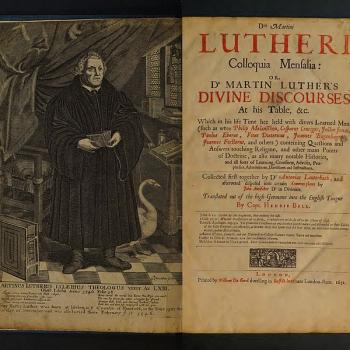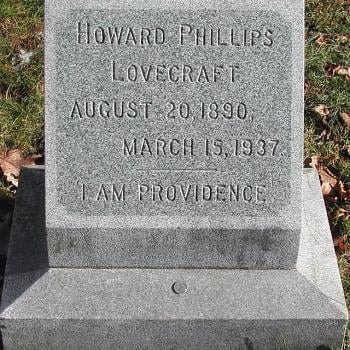Now Featured in the Patheos Book Club
A Long Faithfulness: The Case for Christian Perseverance
By Scot McKnight
Every generation of believers has to ask the questions of faithfulness, of how to express in their own time and their own culture the truth of the gospel. And every generation faces its own temptations to wander, to forget, to distort, to neglect. Some seem to find comfort in the idea that God has determined every circumstance and every outcome, so that there's no need to focus on the journey into full redemption. McKnight tells us that that is a false security, and that the scripture teaches us a hearty, humble, and unwavering pursuit of God.
As part of the Patheos Book Club on A Long Faithfulness, McKnight answered some questions for us about the Calvinist arguments, and how the passages in Hebrews actually mean something else. What does it mean to go on choosing God?
What really inspired you to write something on these very specific passages in Hebrews? Was there a significant conversation or event that persuaded you it was necessary?
As a graduate assistant to Grant Osborne when I was in seminary, I was given the assignment to "update" his notes on the problem of falling away and perseverance in the Bible. So I read his notes carefully and read a classic book on the same topic; it provoked in me a need to resolve the problems in this topic by examining the Bible.
Move forward a decade and I was teaching alongside Grant Osborne at Trinity and I was teaching the book of Hebrews; I chose to spend a good chunk of time carefully examining the warning passages in Hebrews. What I found was a four-fold pattern: each discussed the audience, the warning itself, the danger, and the sin that could be committed. I shaped that research into a journal article and then going on twenty years later I drafted it into this book, A Long Faithfulness. I'm convinced the church needs to hear the rhetoric of warning from God -- the warning to remain faithful.
Can you explain briefly the meaning of "meticulous sovereignty" and why you think it's problematic?
"Meticulous sovereignty" teaches that God determines, according to his own predetermined plan, each and every event that happens in the cosmos, from the smallest of decisions (which color of a toothbrush to purchase) to big ones (which church should I attend, which spouse do I choose, which career to take) to mind-boggling colossal ones (when to create, when to consummate the ages).
It's problematic because it makes God causally connected to everything that happens, including evil. I'm persuaded no Calvinist answer within meticulous sovereignty can avoid impugning God's goodness.
You describe your gradual shift from a solidly Calvinist interpretation of eternal security to something much more dependent on human effort. And yet your words aren't threatening or despairing in any way, but hopeful. Can you explain this?
The warning passages in Hebrews, if they describe (as I think) the real possibility of a genuine believer falling away from eternal salvation, are designed to spur us to deeper trust and deeper humility -- not to fear or introspective compulsivity. The thrust of the Book of Hebrews on this theme is to exhort, and along the way the author at times makes it clear he doesn't think the audience will fall away.
Do you think Evangelicalism has become more Calvinist in the last several decades? How do you explain this? And what do you think the consequences of this shift have been?
The numbers tell the story, and what I have heard is that the numbers have not shifted that much. But, but, but… there's a perception among many of us that strong Calvinist voices have gained the platform (Piper, Mohler, Chandler, Chan). The emphasis on Calvinism is stronger among "mainline evangelicals" today than was the case in the 1970s-1980s, and I think the Passion Conference and John Piper's sheer charisma have created this perception. Plus, it seems many young evangelicals who are zealous and almost certainly will be the leaders of the next generation of evangelicalism are Calvinistic, even strong Calvinists.
Calvinism, however, is not evangelicalism's problem -- even if this movement at times is divisive and arrogant about its theology. Even if I disagree and think its case is not as biblical as its proponents think. Even if I think a more faithful approach to the Bible is not strong Calvinism. Criticisms can be laid at the door of Calvinism, but evangelicalism's problem is not Calvinism. God be blessed for robust theological perspectives like this.




